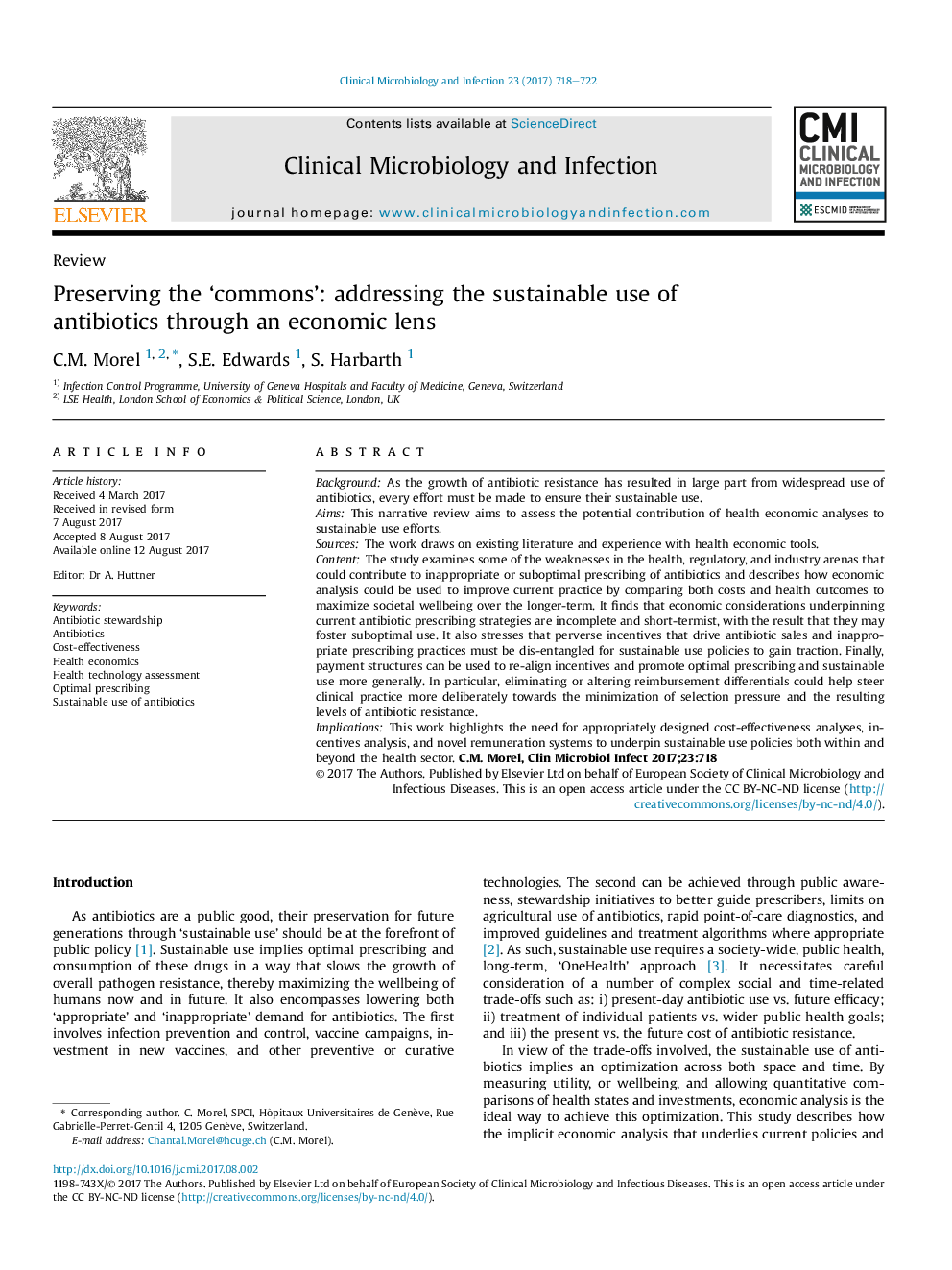| Article ID | Journal | Published Year | Pages | File Type |
|---|---|---|---|---|
| 5671581 | Clinical Microbiology and Infection | 2017 | 5 Pages |
BackgroundAs the growth of antibiotic resistance has resulted in large part from widespread use of antibiotics, every effort must be made to ensure their sustainable use.AimsThis narrative review aims to assess the potential contribution of health economic analyses to sustainable use efforts.SourcesThe work draws on existing literature and experience with health economic tools.ContentThe study examines some of the weaknesses in the health, regulatory, and industry arenas that could contribute to inappropriate or suboptimal prescribing of antibiotics and describes how economic analysis could be used to improve current practice by comparing both costs and health outcomes to maximize societal wellbeing over the longer-term. It finds that economic considerations underpinning current antibiotic prescribing strategies are incomplete and short-termist, with the result that they may foster suboptimal use. It also stresses that perverse incentives that drive antibiotic sales and inappropriate prescribing practices must be dis-entangled for sustainable use policies to gain traction. Finally, payment structures can be used to re-align incentives and promote optimal prescribing and sustainable use more generally. In particular, eliminating or altering reimbursement differentials could help steer clinical practice more deliberately towards the minimization of selection pressure and the resulting levels of antibiotic resistance.ImplicationsThis work highlights the need for appropriately designed cost-effectiveness analyses, incentives analysis, and novel remuneration systems to underpin sustainable use policies both within and beyond the health sector.
